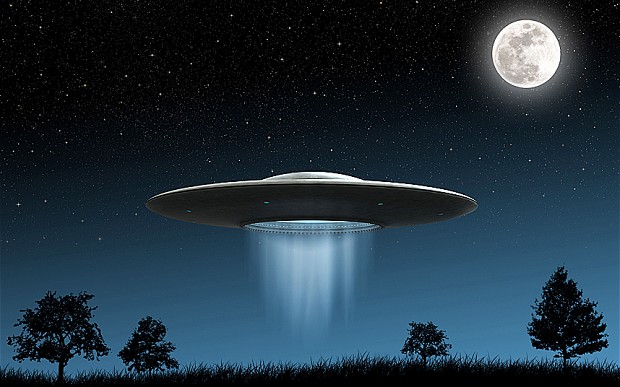By NEIL GENZLINGER
c. 2014 New York Times News Service
NEW YORK —
It’s not an invasion from space, but it is an invasion about space.
A batch of programs related to the heavens and what might or might not be lurking in them are coming in March, and the Science Channel got things started on Sunday, kicking off a week of offerings on the theme “Are We Alone”?
The answer, of course, is, “We have no idea,” but in exploring the question the Science programs at least prove one thing: No camera angle is too odd when the subject is extraterrestrials.
Take, for instance, the presentations in “Close Encounters,” an embarrassing series being introduced with episodes on Tuesday and Friday.
Using hokey re-enactments and a smattering of commentary by supposed experts, it dusts off old U.F.O. sightings — by a farm family in Kansas in 1971, police officers in Illinois in 2000, and more — that it says still defy explanation.
All will be familiar to the U.F.O. crowd, and the program adds no new information or credibility to them, especially since the re-enactments have a silly 1930s look regardless of when the sightings occurred.
And the “experts” — authors, self-described U.F.O. investigators — are shot in heavy shadow reminiscent of found-footage horror movies in which someone shines a flashlight on his own face in a dark room.
And as if the shadow weren’t spooky enough, the camera angles for these expert interviews jump around ridiculously, often in mid sentence.
We’re looking the expert in the face for the independent clause, but for the dependent clause we’re suddenly staring into his ear.
The filmmaking theory seems to be that if you discombobulate viewers with random shifts of the camera perhaps they won’t notice that your U.F.O. show contains no hard evidence of U.F.O.’s.
The experts are better lighted and more credible in “NASA’s Unexplained Files” on Sunday night. The only thing missing is the “unexplained.”
The program examines weird things NASA and its astronauts have noted over the years: odd lights observed by Leroy Chiao during a 2005 spacewalk; a triangular something-or-other seen from the space shuttle in 1986.
The segments are teased with attention-getting narration and quote fragments: “I certainly hope it’s not a death star. Otherwise we’re in serious trouble.”
But most everything turns out to be pretty explainable. No extraterrestrials here; just an assortment of interesting anecdotes.
The heavy shadows are back on Wednesday in a new episode of “Through the Wormhole With Morgan Freeman,” and Freeman is the one shrouded in them, again an effort to add a mysterious ambience to the proceedings.
But this always intriguing program, unlike “Close Encounters,” features real scientists and scholars and high-concept theories, with the barely visible Mr. Freeman as the guide.
His subject for “Are We Alone?” week is, “Is God an Alien Concept?”
At issue is whether other beings in the universe are likely to ponder the meaning of life and the possibility of God.
That premise leads Freeman to introduce scholars and researchers who are exploring the nature of self-awareness — including in elephants — and the origins of religion.
The space theme comes in when the program speculates on two possibilities.
One is that an advanced civilization Out There will have outgrown God, just as some scholars think humans will as their scientific knowledge grows.
The other is that when we ultimately make contact with extraterrestrials we will find that the thing that binds all beings together is their shared need for a concept like God, because some questions are unanswerable.
If nothing else, “Are We Alone?” week sets the stage for the mix of dumb and smart space-related programming coming up.
On the dumb side a four-part series called “The Happenings” begins on March 20 on the National Geographic Channel with an episode in which two illusionists try to convince an entire town that it is under alien attack.
The smarter side: On March 14 the same channel is presenting “Live From Space,” broadcast in part from the International Space Station. And on March 9 comes the heavily promoted “Cosmos: A Spacetime Odyssey” on Fox and other outlets.

